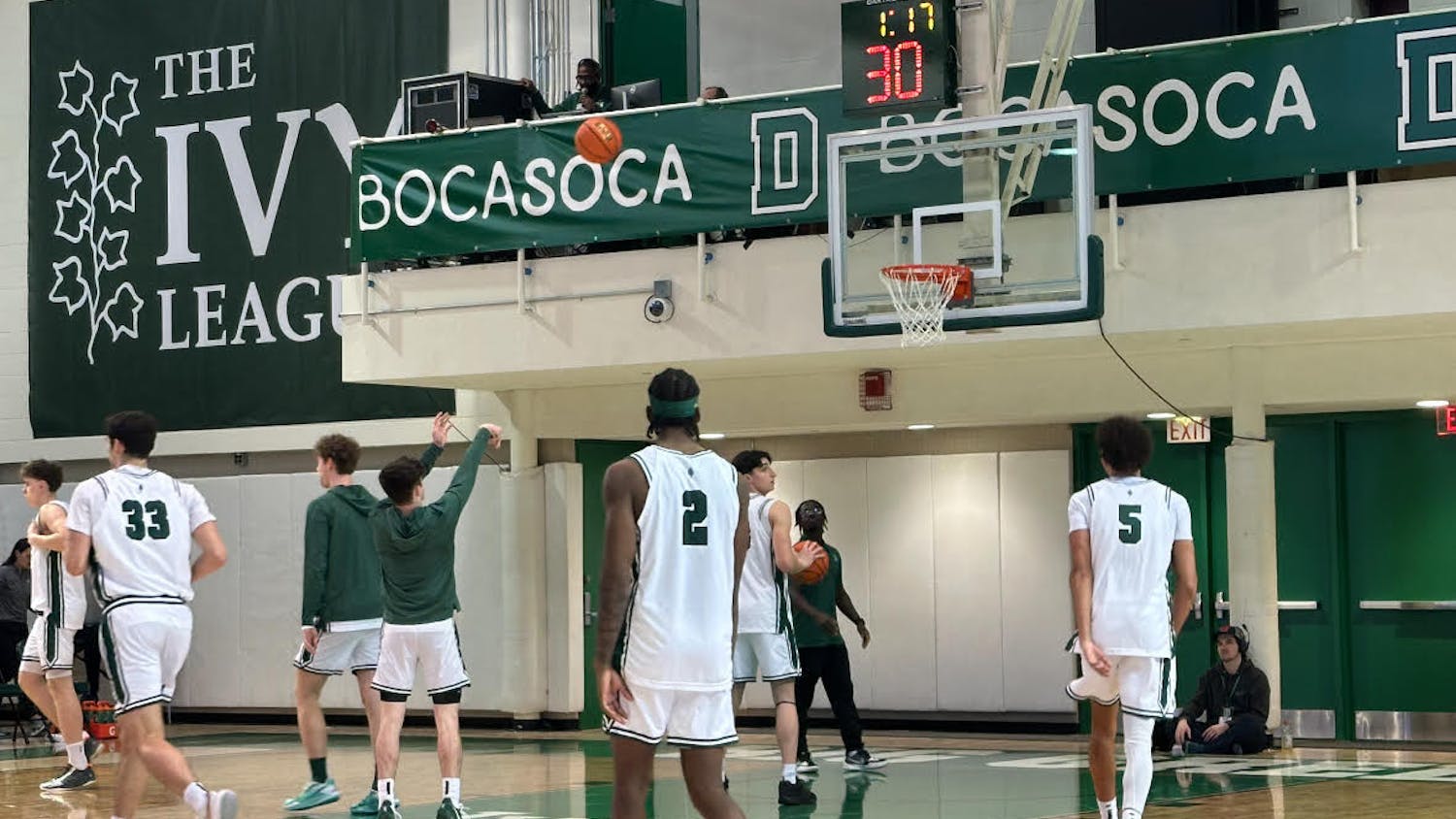My classmate Chad Hollis '12 argued in his column last Friday that student-athletes should not be given a share of athletic department revenues gained by collegiate institutions revenues that are made possible because of the performances displayed by many of these same individiduals ("Hollisto's World," Oct. 7). But why not let these student-athletes receive some of the pie they cooked themselves?
Hollis argues that Dartmouth student-athletes play their sports for the love of the game. This passion for their respective sports is what drives them to persevere and dedicate themselves to fully being student-athletes. "This passion is what makes collegiate sports special and it is slowly disappearing from institutions across the country," Hollis wrote.
I know many student-athletes on this campus, as well as others in different institutions, and I can attest that they are all very dedicated to their sport, but also to finishing their homework and doing well on exams. The passion that Hollis describes is in fact not disappearing across the country, and the student-athletes you and I know can defend that. Rather, the new trend occurring across the country is the discovery of "money handshakes."
Let's be real here. There has always been a collegiate underground economy, and it has been a visible problem since the "Fab Five" at the University of Michigan were cited for violations in the early 1990s. These five, ultra-popular basketball players had been receiving gifts and cash during their college careers and were eventually discovered. Michigan had to vacate the team's victories and statistics collected from 1991 to 1995.
Did the Michigan basketball players lack a passion or love for their sport? Absolutely not. It can be argued that these kids had the biggest love for their sport and enjoyed every second they played on the same court. That they accepted cash and gifts does not take away from their dedication to the craft that so defined their time at college. They were simply young adults in need of cash and were willing to accept it from older businessmen they trusted.
So what would I suggest as the best course of action in this situation? Well, first off, legalizing the acceptance of cash and gifts is a bad idea. Allowing this would create a mess that would be terribly difficult to deal with. My suggestion would be to give student-athletes a larger weekly stipend. This way, they wouldn't feel impelled to accept money from boosters or other businessmen.
Student-athletes should also receive a small percentage of the total revenue accrued from sport events and team merchandise, especially at schools where the revenue from athletics plays a big role in enrollment and endowment. The student-athletes are a huge reason why massive state schools fill up their stadiums. Student spectators go absolutely insane when their college teams get on the field. These students that do homework at the same library as you do are the athletes who sell tickets, and that is the reason why they should see at least some of the money they helped make.
Now, many of today's stars leave college to chase the professional dream and money. If these athletes had seen some of the profits made on their behalf, then perhaps they wouldn't have left college early and could have finished their academic careers, thereby enforcing the "student-athlete" mentality.
Giving student-athletes a stipend and a small percentage of total profits will keep kids out of trouble. There's no way around a couple extreme cases, like that of former University of Auburn star Cam Newton, whose father wanted $180,000 for Cam's playing time. The father was being selfish and while that may or may not have been an anomaly, I'd like to think it is.
What about Terrell Pryor, yet another former star quarterback, this time at Ohio State University, who withdrew from the university for having accepted tattoos and other gifts? By giving these student-athletes a share of earnings, they would be able to use the money at their discretion.
Denying that student-athletes across the nation aren't taking part in money handshakes and gift-giving encounters is naive. It happens, and it would be smart for institutions around the country to help student-athletes avoid difficult situations by giving them a portion of the money they produce. Student-athletes have a hunger for success and intelligence no one is denying that but let's not forget about the hunger they have for a slice of that sweet and most-coveted money pie.



